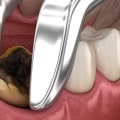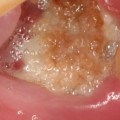If you've recently had a tooth extracted, you may be wondering what to do if you experience bleeding afterwards. Control bleeding with a piece of gauze by placing it over the dental cavity and avoiding vigorous rinsing or spitting. Seeing a small amount of blood periodically is normal, but if excessive bleeding continues, you should see a dentist as soon as possible. One of the best ways to stop bleeding after a tooth extraction is to use a hot tea bag containing black tea.
Black tea has tannins, which are haemostatic and cause the blood to clot and form clots, helping to stop the bleeding. Bleeding typically continues up to 24 hours after a tooth has been extracted, but should remain minimal and tolerable. If it continues after 24 hours and causes discomfort, that's a cause for concern. Gently rinsing with salt water is another way to stop bleeding after a tooth extraction. Additionally, avoid lifting heavy objects or doing strenuous activities within 72 hours after the extraction.
Applying pressure directly to the tooth extraction site can also help the clotting process begin. Tooth extraction is still a type of surgery and the mouth is very delicate, so it's important to be aware of environmental factors that can interfere with its recovery. If you experience pain or bleeding after a tooth extraction, use salt water to rinse your mouth and gargle. Shake the mixture slowly and gently through the mouth and over the area where the tooth was extracted. By knowing what to expect after a tooth extraction, you can be prepared for a smooth recovery. If you experience excessive bleeding or discomfort, contact your dentist as soon as possible.






